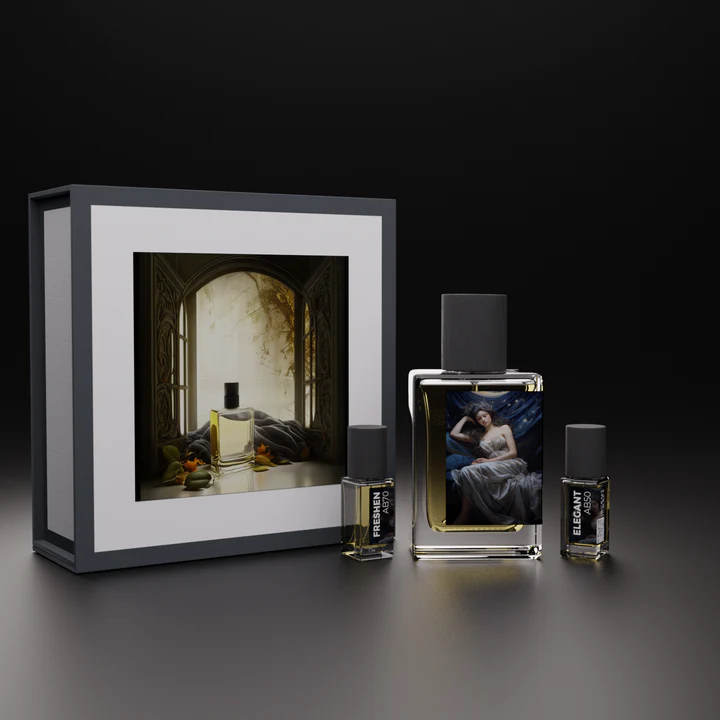Introduction
Selecting the perfect perfume can be a delightful and personal experience. Fragrance is a powerful tool for self-expression, and the right scent can leave a lasting impression on those around you. However, with countless options available, choosing the best perfume can be overwhelming. This guide will help you navigate the world of fragrances and find the perfect scent for you within a budget of $750.
Understand Your Fragrance Preferences
Before diving into the perfume aisle, take some time to understand your fragrance preferences. Perfumes can be classified into various scent families, including floral, oriental, woody, and fresh. Consider the following questions:
a. Do you prefer floral scents that are light and airy, or are you drawn to more intense and exotic oriental fragrances?
b. Are you a fan of woody and earthy notes, or do you enjoy the crispness of fresh and citrusy scents?
c. Are you looking for a perfume for everyday wear or a special occasion?
Understanding your preferences will narrow down your choices and make the selection process easier.
Know the Fragrance Notes
Perfumes are composed of different fragrance notes, which are categorized into three main layers:
a. Top Notes: These are the initial scents you detect when you first apply the perfume. They are usually light and fresh and last for about 15-30 minutes.
b. Middle Notes (Heart Notes): These notes emerge after the top notes dissipate and form the core of the fragrance. They often represent the perfume’s theme and can last for several hours.
c. Base Notes: Base notes are the deep, long-lasting scents that develop as the fragrance dries down. They provide the perfume’s foundation and can last for hours or even days.
Understanding the composition of a perfume will help you determine if it aligns with your preferences. For example, if you enjoy floral scents, look for perfumes with prominent floral middle notes.
Test Perfumes In-Store
The best way to choose a perfume is to experience it firsthand. Visit a perfume store or counter, and take your time trying out different fragrances. Here’s how to do it effectively:
a. Start with a few options: Don’t overwhelm yourself by trying too many perfumes at once. Begin with a shortlist based on your preferred scent families and notes.
b. Use scent strips: Spray each perfume on a separate scent strip or card to avoid mixing scents.
c. Wait for the dry-down: Allow the perfumes to dry down on the scent strips for a few minutes. This will give you a better sense of the fragrance’s middle and base notes.
d. Smell the strips: Sniff the scent strips and take note of how each perfume makes you feel. Pay attention to any immediate reactions or emotions the scent evokes.
Test Perfumes on Your Skin
While scent strips are helpful for initial assessments, it’s crucial to try the perfume on your skin. Perfumes can smell different on your skin than on a strip due to your body’s chemistry. Here’s how to test perfumes on your skin:
a. Apply one perfume per wrist: Spray a different perfume on each wrist, and allow them to dry for a few minutes.
b. Avoid rubbing: Do not rub your wrists together, as this can alter the fragrance’s composition.
c. Go about your day: Wear the perfumes throughout the day to observe how they develop and interact with your body chemistry.
d. Revisit your choices: After several hours, revisit the scents and choose the one that has the most appealing dry-down and longevity on your skin.
Consider the Occasion
Different occasions may call for different perfumes. For example, a light, fresh scent may be ideal for everyday wear at the office, while a more intense and luxurious fragrance might be perfect for a special evening event. Consider the following when choosing a perfume for a specific occasion:
a. Daytime vs. nighttime: Daytime fragrances tend to be lighter and more subtle, while nighttime fragrances can be bolder and more dramatic.
b. Seasonality: Some scents are better suited for specific seasons. Fresh, citrusy fragrances are great for spring and summer, while warm, spicy fragrances are excellent for fall and winter.
c. Formal vs. casual: Tailor your choice to the formality of the occasion. Opt for a more understated scent for professional settings and save the more intense fragrances for formal events.
Consider the Perfume’s Longevity and Sillage
Longevity refers to how long a perfume lasts on your skin, while sillage refers to how far the scent projects from your body. When choosing a perfume, take these factors into account:
a. Longevity: If you prefer a fragrance that lasts all day, look for options labeled as “eau de parfum” or “parfum,” as they typically have higher concentrations of fragrance oils.
b. Sillage: Consider how strong you want your scent to be. Some perfumes have a strong sillage and can fill a room, while others are more subtle and intimate. Choose accordingly.
